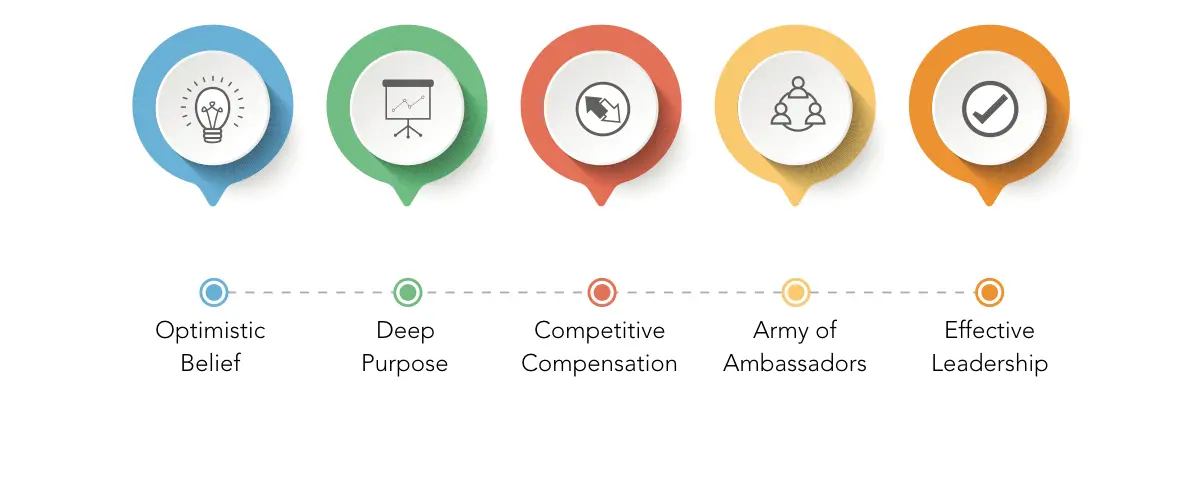The data is in. Companies that have elite cultures outperform those who don't. Take Chick-fil-A for example. The company is on pace to become the nation's third-largest fast food restaurant by 2020. The company generates more revenue per restaurant than any other fast-food chain in the US, and it's only open six days a week.
Chick-fil-A's average sales per restaurant in 2016 were $4.4 million. Its fried-chicken competitor KFC sold $1.1 million per restaurant that year, according to a report from QSR magazine.
While there is a certainly a legitimate argument that Chick-fil-A has better chicken than KFC, it certainly isn't 4x better. So the natural question becomes, what's the difference, maker?
The difference comes down to an elite company culture driven by Chick-fil-A leaders and their team members. While there are many definitions of culture, the actual definition is "the shared beliefs and values that guide thinking and behaviors."
Through our work and research around measuring a company's culture, we have found there to be five key building blocks to measure.
1. Effective Leadership
The most critical element of employee engagement revolves around the relationship between boss and direct report. It's the linchpin of an engaged workforce. A study by the Herman Group showed 75 percent of people who voluntarily leave their job, do so because of their boss, not the company. If you have front-line managers that aren't effective at leading other people, it's hurting your company culture.
2. Deep Purpose
With the influx of millennials employees in the workforce and Generation Z right behind them, companies that are connected to the purpose of their work will continue to retain and attract the best talent. In order to do this, executive leadership teams must define their mission, vision, and values. Often times these things are defined but aren't lived out in actions and behaviors.
3. Army of Ambassadors
The latest statistics on employee engagement are scary. As much as 62 percent of the current workforce aren't engaged at work according to Gallup. Instead of exploring all the reasons for disengagement, it's more useful to determine if the problem exists in your organization. The simplest way to figure out if this out, is by determining if team members are ambassadors for your brand.
Do they talk about what they do with excitement? Do they recommend it as a place to work? Do they plan to work there in two years? If you are unsure or don't like the answers to these questions, it means there is work to do in creating an Army of Ambassadors.
4. Optimistic Belief
At the core of any successful business or team is a deep unwavering belief in the future and what is possible. Colin Powell said it well in his book, It Worked for Me, "Perpetual optimism is a force multiplier." The best leaders know that without optimism and belief, achieving higher levels of success isn't possible. Negativity and disbelief come from many places and if they exist in your company it will eat at your company culture day in and day out.
5. Competitive Compensation
Compensation can't be neglected in any business. To go back to the Chick-fil-A example, they don't pay their employees more on average than their nearest competitor KFC. Where culture begins to be impacted is where the compensation is below or well below industry averages for a sustained period of time. This can even be impacted by the perception of low compensation by team members vs. actual data that supports the perception.




Leave your comments
Post comment as a guest